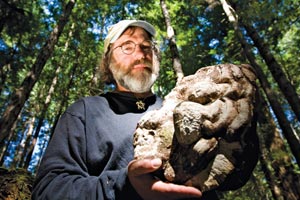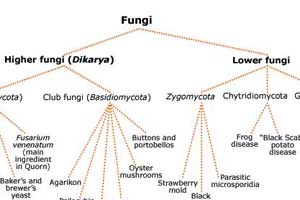
Photo: Wikimedia Commons
Paul Stamets envisions a world in which mushrooms aren’t just for foodies but are a powerful way to fight disease, clean up pollution, and produce clean energy. Some fungi-friendly developments that could spring from his research:
A MUSHROOM OF ONE’S OWN Cardboard is impregnated with spores so that instead of throwing away boxes, you can put them outside and—voilà!—organic, locally grown mushrooms.
FLU FIGHTERS Fungi are developed into new and powerful antivirals that can stop smallpox, tuberculosis, HIV, and flu strains.
SPORE CLEANSERS Polluted watersheds are purified and filtered by fungi. Oil spills, mining runoff, and other contamination can also be cleaned up by mycoremediation.
THE WAR ON BUGS Entomopathogenic fungi replace toxic pesticides for termites and carpenter ants. Another strain targets malarial mosquitoes.
MUSH-VROOM Myconol, a cellulose-based biofuel produced by fungal sugars, is nearly identical to corn ethanol, without the oily agribusiness connection.
FUNGI.GOV The forests where fungi such as agarikon grow are preserved as a matter of national security. The feds stockpile fungal drugs in case of a bioterror attack or flu pandemic.
MUSHROOMS TO MARS Stamets theorizes that fungi could thrive on other planets—should we decide to enlist them as interplanetary ambassadors. “Spores have no borders,” he writes.
















